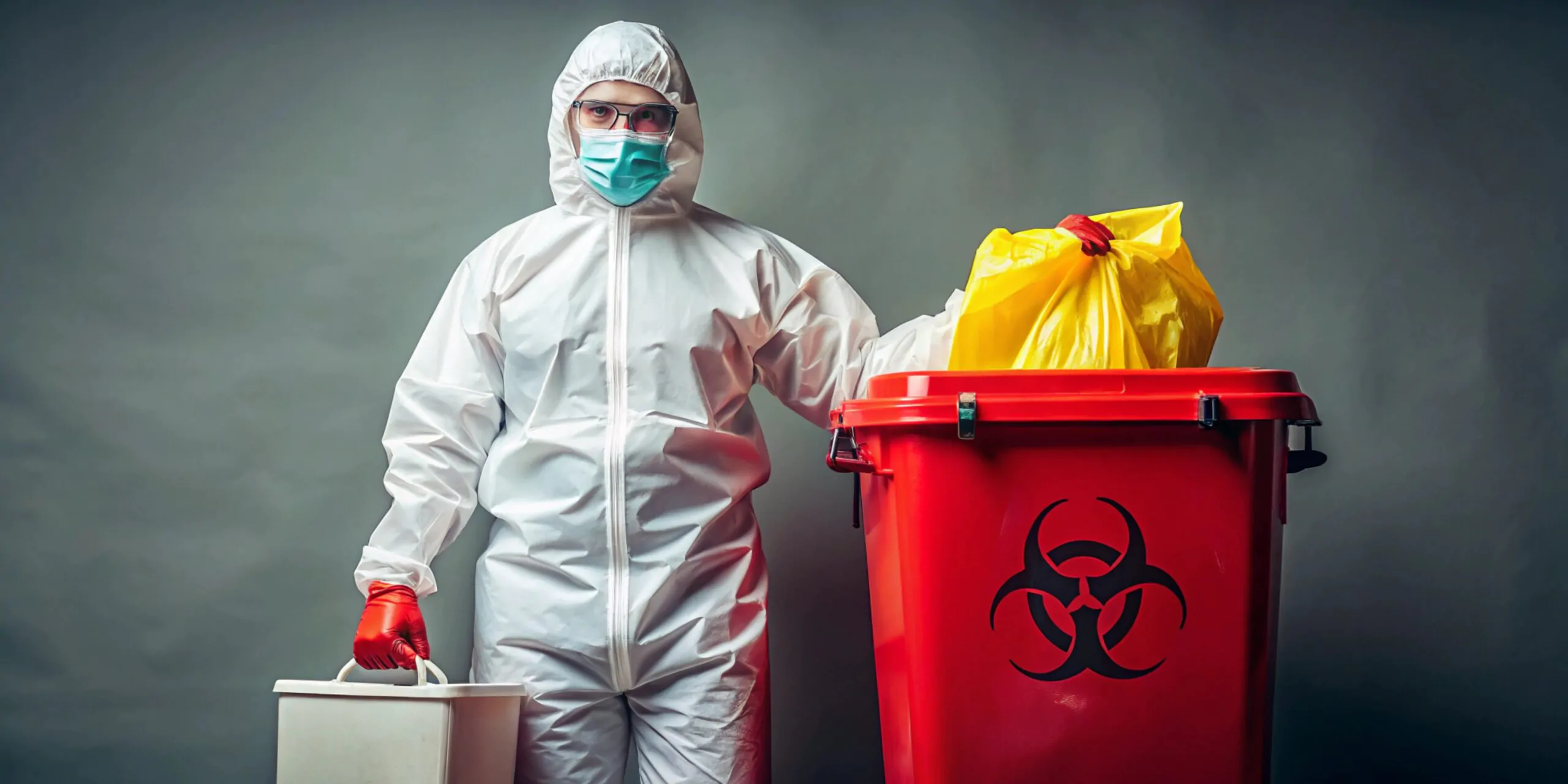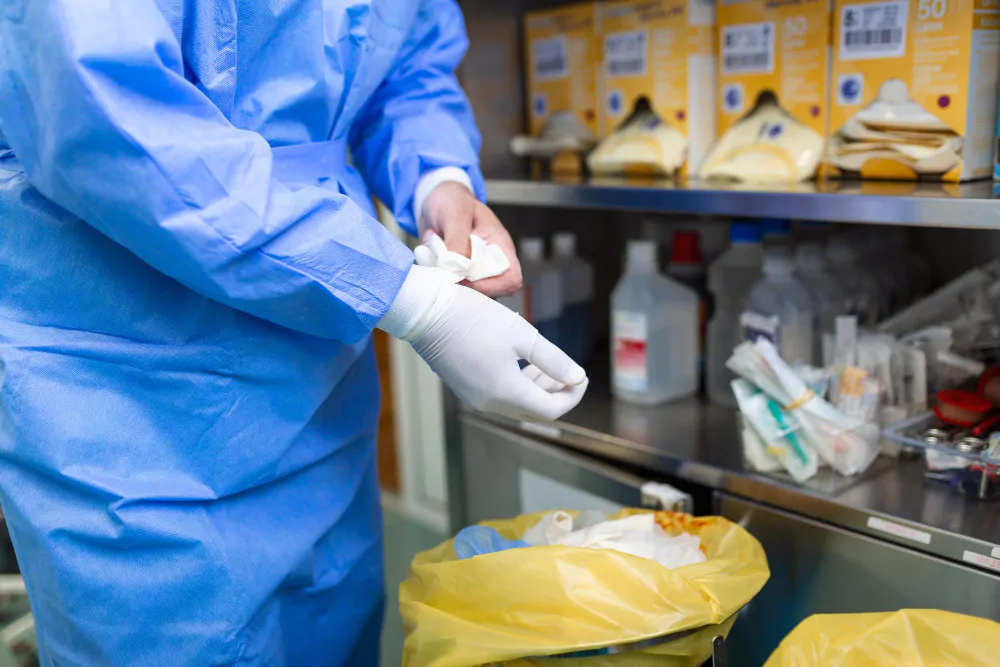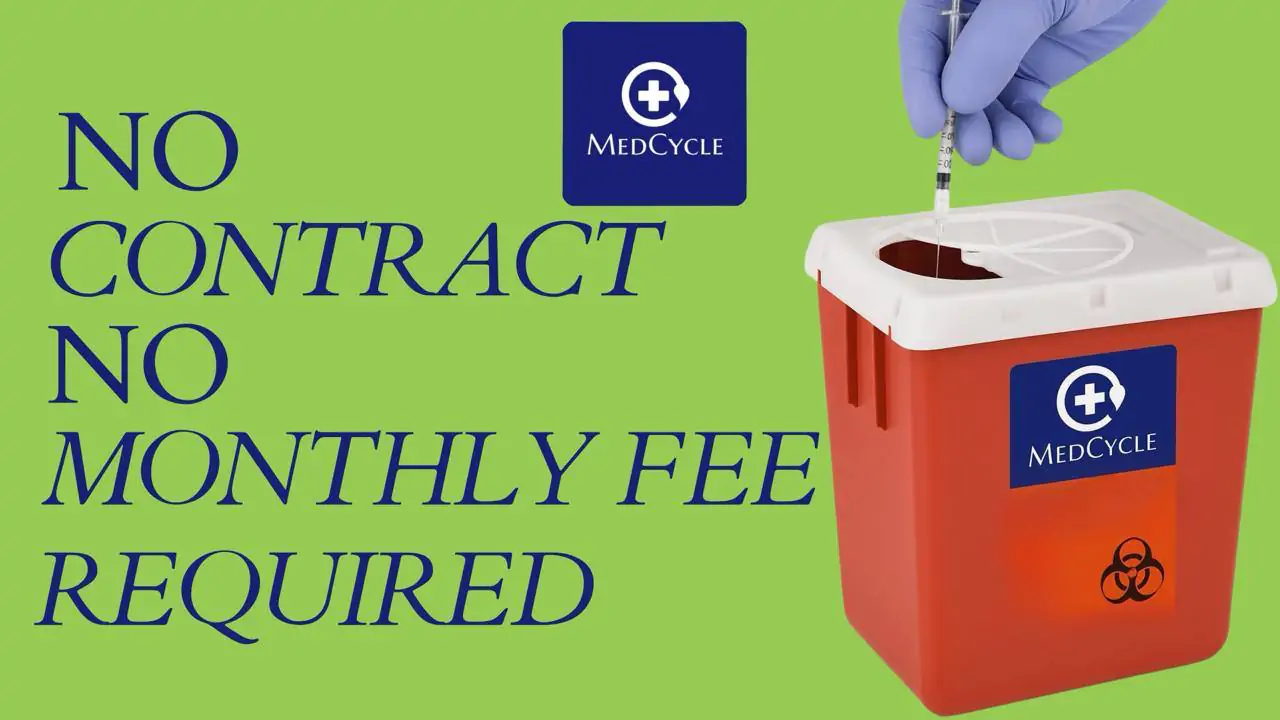When it comes to handling infectious or hazardous waste, one of the most important questions clinics ask is: what are the different types of biohazard disposal methods, and which is right for my facility?
The truth is, biohazard disposal isn’t one-size-fits-all. Each type of waste from sharps to blood-soaked bandages needs its own method of treatment to protect staff, patients, and the environment. Understanding these options is essential for medical waste management and for staying compliant with EPA regulations and OSHA standards.
In this guide, we’ll explore the 5 main types of biohazard disposal, compare their pros and cons, and explain how to choose the safest and most cost-effective method for your facility.
What Is Biohazardous Waste?
Biohazard waste is any waste that contains infectious materials or potentially harmful biological agents. It can spread diseases, contaminate water supplies, or harm the environment if not handled correctly.
Common sources of biohazard waste include:
-
Hospitals and clinics
-
Dental and veterinary offices
-
Laboratories and research facilities
-
Pharmacies and surgical centers
Examples of biohazard waste:
-
Sharps waste: needles, syringes, scalpels
-
Pathological waste: tissues, body parts, organs
-
Microbiological waste: cultures, lab specimens
-
Blood products: bandages, gloves, or containers soaked with blood
-
Pharmaceutical waste: expired or unused medications
👉 Recognizing these waste types is the first step. Choosing the right biohazard disposal methods is the second — and equally important.
Why Proper Biohazard Disposal Matters
Biohazard disposal isn’t just about following the rules. It’s about protecting people and the planet.
-
Prevents Contamination: Stops the spread of pathogens.
-
Protects Health: Keeps staff, patients, and communities safe.
-
Supports Compliance: Meets local, state, and federal regulations.
-
Minimizes Environmental Impact: Reduces pollutants and landfill use.
Failure to handle waste correctly can result in serious fines, reputational damage, or even outbreaks. That’s why medical waste management must be a top priority for every healthcare facility.
The 5 Main Types of Biohazard Disposal Methods
Different types of waste require different treatments. Here are the five most common methods used worldwide:
1. Autoclaving (Steam Sterilization)
How it works: Uses high-pressure steam to sterilize waste and destroy pathogens.
Best for: Microbiological waste, medical instruments, and lab specimens.
Pros:
-
Highly effective against bacteria and viruses.
-
Eco-friendly (no harmful emissions).
-
Cost-efficient for routine waste.
Cons:
-
Not suitable for pathological waste or pharmaceuticals.
-
Limited effectiveness for chemical contaminants.
👉 Many hospitals use autoclaving as their go-to method because it’s safe, affordable, and environmentally friendly.
2. Incineration (High-Temperature Destruction)
How it works: Burns waste at extreme temperatures until only sterile ash remains.
Best for: Pathological waste, pharmaceuticals, and contaminated materials.
Pros:
-
Completely destroys pathogens.
-
Reduces waste volume by up to 90%.
-
Handles materials that other methods cannot.
Cons:
-
Can release emissions if not controlled.
-
More expensive due to energy use.
👉 Incineration is often required for tissues, organs, and high-risk materials where other disposal methods are insufficient.
3. Chemical Disinfection
How it works: Applies chemical agents (like chlorine compounds) to neutralize pathogens.
Best for: Liquid waste and certain contaminated solids.
Pros:
-
Effective for liquids and select solids.
-
Cost-effective for smaller facilities.
-
Can target specific microorganisms.
Cons:
-
Requires trained staff for safe chemical handling.
-
Byproducts may need further treatment.
👉 This method is common in labs and smaller clinics that generate liquid waste frequently.
4. Microwave Treatment
How it works: Uses high-frequency electromagnetic waves to heat waste internally and kill pathogens.
Best for: General medical waste (not suitable for dense or chemical waste).
Pros:
-
Quick treatment process.
-
Lower energy use than incineration.
-
Minimal environmental impact.
Cons:
-
Not effective for all waste types.
-
Requires specialized equipment.
👉 Microwave treatment is considered an innovative, greener alternative for facilities focused on sustainability.
5. Alternative Methods (Encapsulation, Deep-Well Injection, Landfills)
Some types of biohazard waste require specialized disposal methods:
-
Encapsulation: Encasing waste in solid material (like concrete) to prevent exposure.
-
Deep-Well Injection: Pumping liquid waste deep underground into isolated rock formations.
-
Landfill Disposal: For treated, non-hazardous remnants that meet safety standards.
These methods are less common but necessary for certain industries and waste types.
Biohazard Cleanup: Beyond Disposal
Disposal isn’t the only step in medical waste management. Biohazard cleanup is equally critical when accidents, spills, or unexpected contamination occurs.
A proper cleanup process includes:
-
Isolating the affected area.
-
Using PPE (gloves, masks, face shields).
-
Applying disinfectants.
-
Safe removal of contaminated materials.
👉 Whether routine or emergency, cleanup is part of responsible waste management and keeps facilities safe from hidden risks.
Choosing the Right Biohazard Disposal Method
So how do you decide which of the types of biohazard disposal is right for your facility?
Steps to guide your decision:
-
Identify the types of waste you generate.
-
Assess your facility’s budget and resources.
-
Review state and federal regulations.
-
Consider environmental impact.
-
Partner with a certified disposal company.
Working with professionals like MedCycle Waste Disposal Company ensures your facility stays compliant and protected while reducing costs. MedCycle offers flexible, no contract waste management services tailored to your needs.
Conclusion: Safe Disposal Protects People and the Planet
Understanding the types of biohazard disposal is more than compliance it’s about creating a safe environment for healthcare staff, patients, and communities.
Whether your facility chooses autoclaving, incineration, chemical disinfection, microwave treatment, or specialized methods, the key is proper classification, handling, and professional management.
By working with trusted partners like MedCycle, facilities can stay compliant, reduce risks, and even lower costs. Safe biohazard disposal isn’t just a requirement it’s a responsibility.
FAQs
1. What are the main types of biohazard disposal?
The five main methods are autoclaving, incineration, chemical disinfection, microwave treatment, and specialized methods like encapsulation or deep-well injection.
2. Which biohazard disposal method is the most eco-friendly?
Autoclaving and microwave treatment are generally more sustainable than incineration.
3. What is biohazard cleanup?
Biohazard cleanup involves removing and disinfecting contaminated areas after spills or accidents, preventing further risks.
4. How do facilities choose the right disposal method?
It depends on the waste type, volume, local regulations, cost, and available equipment. Partnering with certified companies like MedCycle simplifies this choice.
5. Can biohazard waste ever go to a regular landfill?
Only after being treated and rendered non-hazardous under strict regulations. Untreated waste must never go in general trash or landfills.



